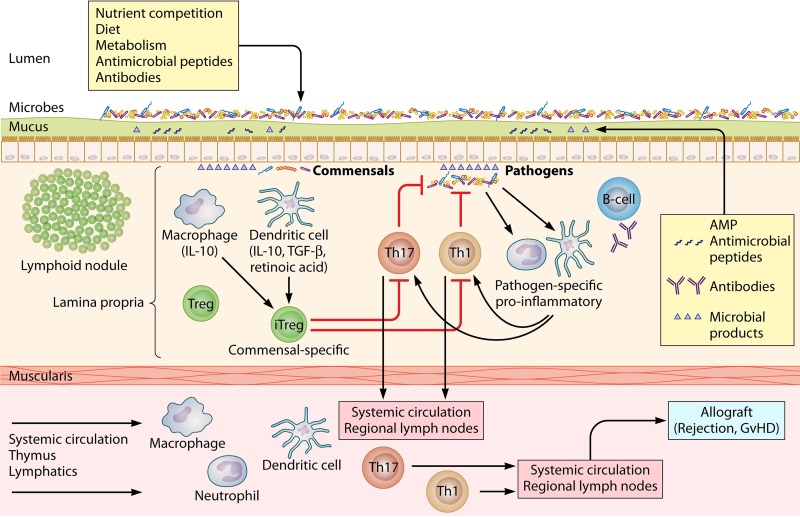FIG 2.
The microbiome in alloimmunity. Under normal conditions, inflammatory responses to gastrointestinal flora are muted via both innate and adaptive immune mechanisms. Subsets of Tregs include both natural, thymus-derived cells with T cell receptors targeting self-antigens and induced Tregs (iTregs) derived from circulating CD4+ cells activated in the presence of microbial antigens, transforming growth factor β (TGF-β), and retinoic acid. In the presence of noncommensal microbial antigens, such as those from Clostridium spp. and Gram-positive segmented filamentous bacteria (SFB), and proinflammatory cytokines, iTreg development is blocked and Tregs may be reprogrammed into proinflammatory Th1 and Th17 effector cells. These effects may be blocked by antibacterial agents. Recipient dysbiosis and receipt of antimicrobial agents may shift iTreg development toward proinflammatory adaptive alloimmune responses. GvHD, graft-versus-host disease.

